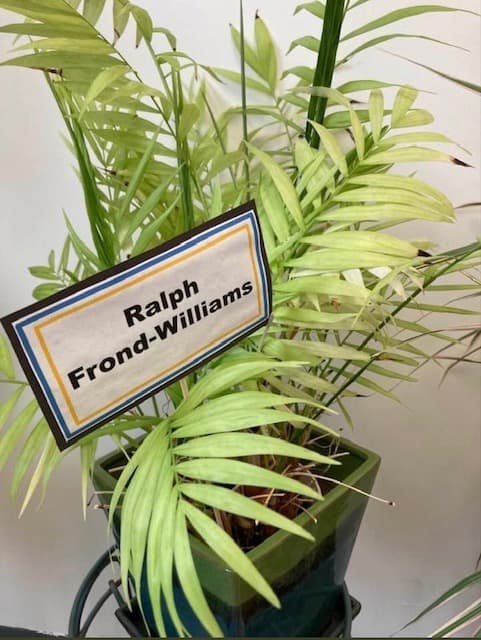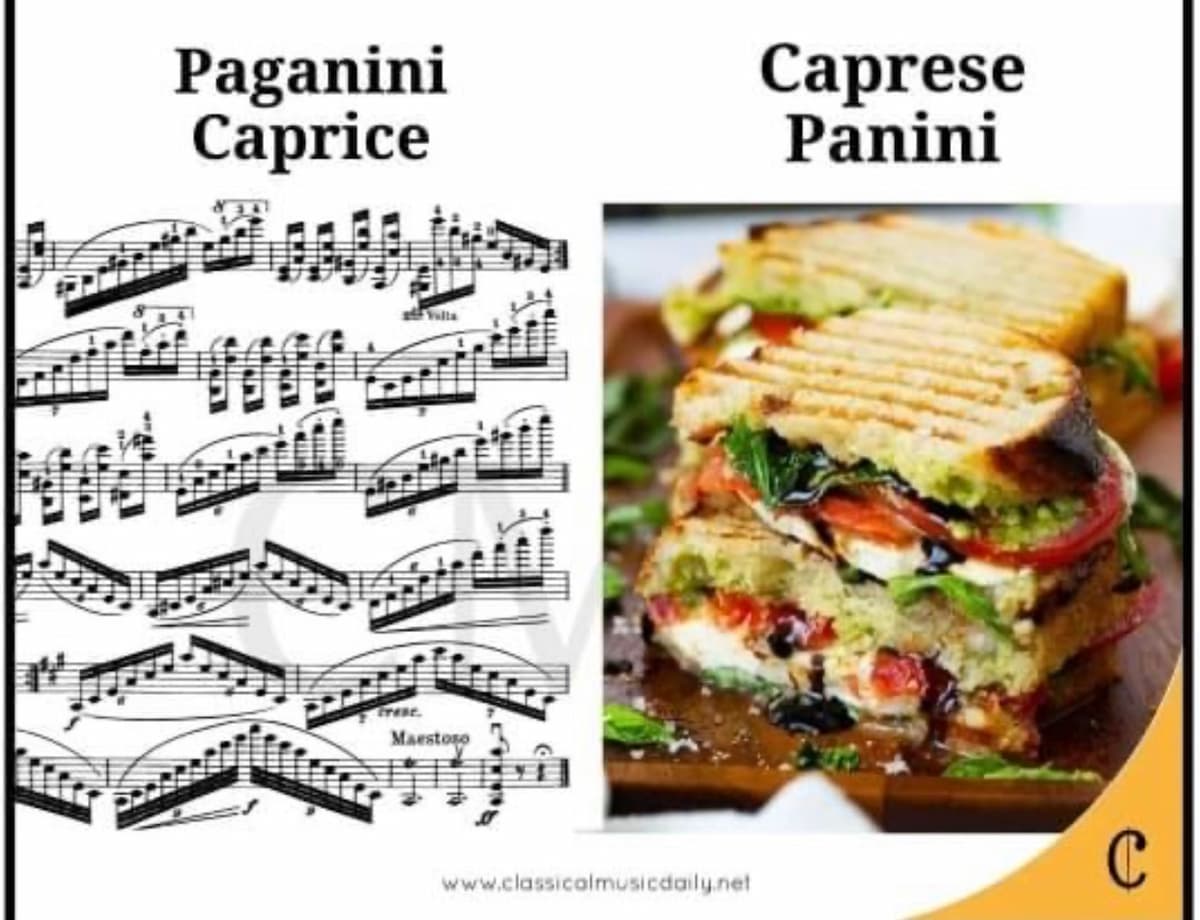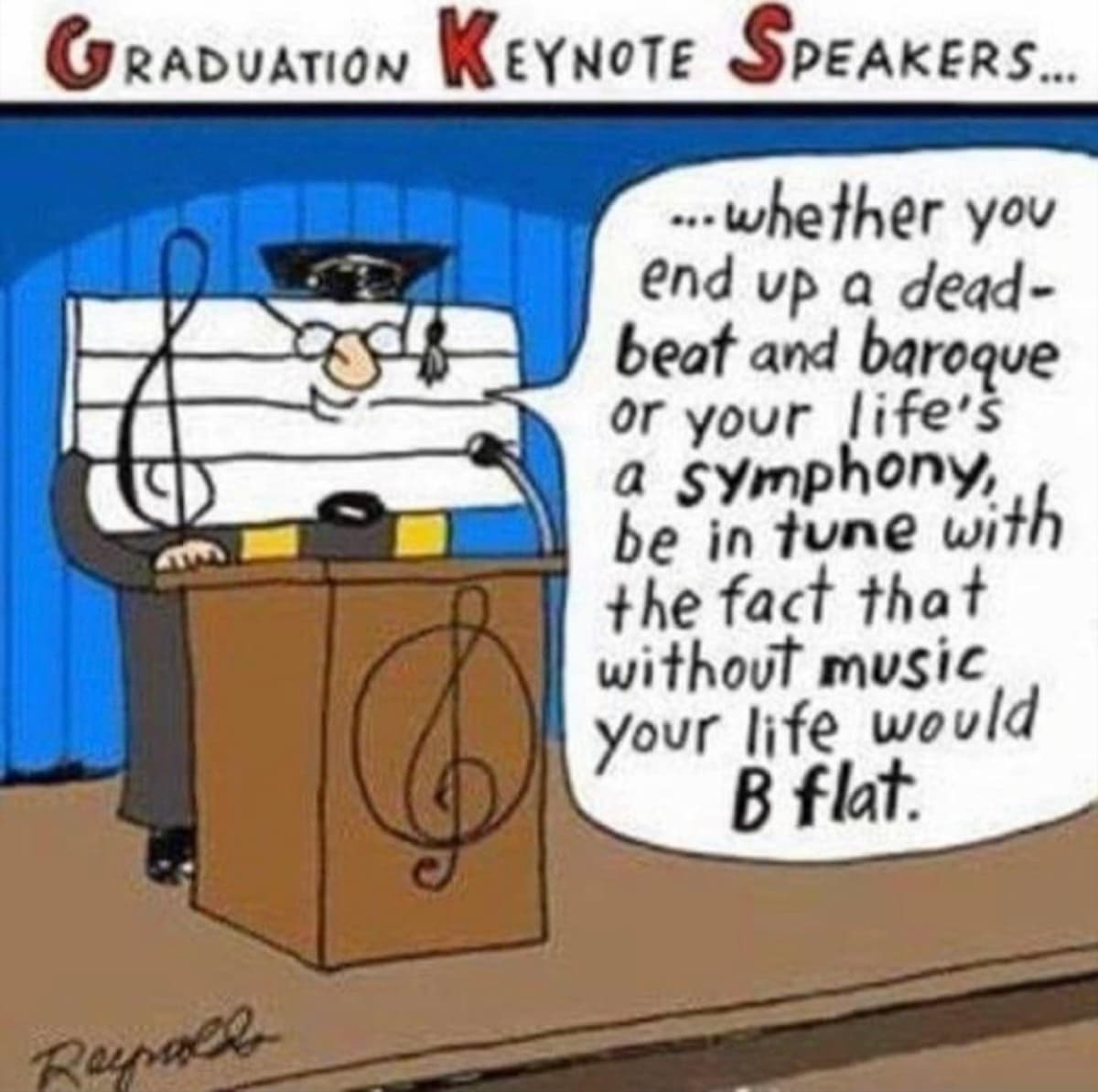It's all about the classical music composers and their works from the last 400 years and much more about music. Hier erfahren Sie alles über die klassischen Komponisten und ihre Meisterwerke der letzten vierhundert Jahre und vieles mehr über Klassische Musik.
Total Pageviews
Sunday, October 29, 2023
Richard Heuberger - his music and his life
Richard Heuberger (1850-1914).
Profession: Conductor, Critic Neue Freie Presse.
Residences: Graz, Vienna.
Relation to Mahler:
Correspondence with Mahler:
Born: 18-06-1850 Graz, Austria.
Died: 28-10-1914 Vienna, Austria.
Buried: Hinterbrühler Cemetery, Vienna, Austria.
Richard Franz Joseph Heuberger hailed from Graz in Austria, where he was born on 18 June 1850. He studied at the Graz Conservatory and then went to Vienna where he became chorus master of the Wiener Akademischer Gesangverein, conductor of the Wiener Singakademie (1878), director of the prestigious Wiener Männergesang-Verein (Vienna Men’s Choral Association) and, in 1902, a teacher at the Konservatorium der Stadt Wien. He was also a music critic and was Eduard Hanslick’s successor on the influential Viennese newspaper, the Neue Freie Presse. His own literary works included various sketches, essays and a biography of Franz Schubert (1902).
As a composer he wrote operas, ballets, choral works, songs and much orchestral music, besides arrangements of works by Brahms and Schubert. When he was in his forties Heuberger turned his hand to writing operettas, six of which were performed. It was, however, with the first of these, Der Opernball (The Opera Ball) in 1898, that Heuberger achieved his most lasting fame. Particularly interesting is the fact that Heuberger was the original choice to set the book of Die lustige Witwe (The Merry Widow) to music. To his credit, after toiling uninspired for three years (1901-1904) on the first act, he raised no objection when the task was entrusted instead to Franz Lehár. Richard Heuberger died in Vienna on 28 October 1914.
Friday, October 27, 2023
Andy Williams- Burt Bacharach Medley (1968)
Andy Williams sings a medley of Burt Bacharach's hits, while Burt conducts the orchestra. Taken from "The H. Andrew Williams Kaleidoscope Company" TV special from 4/28/1968.
Jazz Standards Medley (Fly Me To The Moon, Autumn Leaves, Misty,)
Jazz is always one of my favorite genre of music, and I received so many jazz medley requests. Finally it’s here! I hope you all enjoy 5 popular jazz standards including
0:00 Fly Me To The Moon
1:20 Autumn Leaves
2:49 Misty
4:41 The Way You Look Tonight
5:44 L.O.V.E.
CREDITS
Vocal by Nawinda Sittatikarnvech (Mild Nawin)
Rhythm section arranged by Songpon Anantrachaisilp
Brass section arranged by Wisarut Nualkaew
Piano by Roykhien Wanglert
Double bass by Songpon Anantrachaisilp
Drums by Nitidol Petchprapunkul
Saxophone by Charndanoo Laithong
Trombone by Dhakura Asawaphisit
Trumpet (for visual) by Nuttawut Kumseekaew
Vocal coached by Natakorn Barameekasemchot
Rhythm section recorded by DBS Studio Bangkok Thailand
Brass section recorded by Parames Boonroungkaw
Mixed & Mastered by Nipon Makham
Makeup by MANSRUANG
Hair by Weerasak Kaewchuay
Video directed & Edited by Posathorn Laisuwanchai
Camera assistant by Pongsapak Lertanekwattana
Lighting by Pittayapong Niamphoka
The Success in Failure
by Frances Wilson, Interlude
A new museum in Helsingborg, Sweden, celebrates failure. Yes, you read that correctly – it celebrates failure. The museum displays corporate products which flopped but which paved the way for greater innovation and extraordinary commercial success (for example, Apple’s Newton device was the forerunner of the iPhone and iPad), and prove that failure, and a willingness to learn from it, is a crucial part of success.

“Innovation requires failure. Learning is the only process that turns failure into success.”
– Dr Samuel West, creator of The Museum of Failure
Despite knowing that we can learn from our own mistakes, most of us fear failure, and fear the reactions to that failure – ridicule from family, friends, colleagues, embarrassment, personal disappointment and depression. As musicians, setbacks and failure can have a profound effect on how we approach our music making and professional career. If we perceive failure as humiliation, it can paralyse our ability to learn and develop, but if we can separate our ego from the failure or setback, we can use the experience positively as an informed learning process to shape our future approach, make us stronger and motivate us to work harder and smarter. Sadly for many of us, the “wrongness” of making mistakes is inculcated in us from a young age – by parents, teachers, and peers – and such prejudices combined with a constricted mindset leads us to blame and criticise ourselves for our failings.
The problem for many musicians is that our music and our instrument are crucially entwined with our identity and setbacks can therefore feel like a very personal attack. But if we are able to see what we do as ‘work’, and not allow it to define us as a person, we can take a more objective approach to mistakes and setbacks.

Failure is part of creativity and mastery. Without it we cannot learn, explore, experiment, expand our horizons, and, importantly, progress. By removing emotion and adopting a more positive mental attitude, we can turn failures into successes and become more creative and motivated to succeed. Neuroscientists have found that the parts of our brain responsible for self-monitoring are actually switched off when we are being creative. Thus, by being creative, negative feelings connected with failure can be turned down, allowing the brain to think clearly and spark new ideas and approaches.
My students don’t believe me when I tell them there is a book called The Perfect Wrong Note, which celebrates mistakes and what we can learn from them. In our day-to-day practise, mistakes should be regarded as opportunities for evaluation, reflection and refinement.
Mistakes show we are human, and fallible, that it’s ok to have an off day when your playing and practising may not go as well as usual. Giving ourselves permission to make mistakes allows us to be fulfilled by our music and to feel empowered about our practising. A willingness to make mistakes teaches us to be self-critical, but in a positive, productive way.
Mistakes and failures contain all the information needed for learning – if we are willing to use it – and as the Museum of Failure demonstrates, failure is a crucial part of innovation, creativity and progress.
There is no such thing as failure — failure is just life trying to move us in another direction……Learn from every mistake. Because every experience, encounter, and particularly your mistakes are there to teach you and force you into being more of who you are.
– Oprah Winfrey
Isn’t it Time for More Entertaining Musical Puns?
by Janet Horvath, Interlude
Becoming a musician takes years of serious practice, discipline, motivation, concentration, and dedication. We spend countless hours alone to perfect our playing. When we get together it always helps to laugh a little. Musicians are the first to admit they relish coming up with crazy musical puns and letting the jokes fly.
The quips seem to fit into themes, there are viola and conductor jokes, performance anxiety and nightmare jokes, plays on the titles of pieces jokes as I’ve shown in previous punny articles ( see the links below). You don’t really think I’ve exhausted them all, do you?
I’d like to take a moment to draw your attention to the clever food-themed jokes I’ve come across. The play on composer’s names is especially ingenious.

It is Thyme to begin with herbs and spices before we turn on the Beeth-oven.
We should add these from popular music:
Frank Cilantro, Bob Dillan, Elvis Parsley, Herb Alpert, Scarlet Chives, and Rosemary Clooney.
And from contemporary music:
John Sage
Count on conductors to always add spice:
Herbert von Caraway, and Sage-y-Ozawa
Our dish of course would include fruits and vegetables as well as a little Florence Rice. But if you’re making a Risotto alla Milanese a pinch of Lalo Saffron would be yummy.
Consider some Bach choy, Peter Pears, or even more fresh, Arvo Pear-t (Okay that’s a stretch!) or substitute an Amy Peach.

It’s lovely to sip a favorite beverage such as Chai-Koffee and to have a slice of pizza-cato while you wait.

And don’t forget to water your Ralph frond-Williams while you set the table with a bouquet of Joan Flower.

We musicians do love to get together to play some chamber music but don’t forget to call the piano tuna.

During a break, serve some lovely foods for the occasion but beware of mistaking a Paganini Caprice for a Caprese Panini. For dessert, serve Bachlava. Groan…
I’ll leave you with one important thought. Whether you end up a dead-beat and baroque, or your life’s a symphony, be in tune with the fact that without music life would B-flat.

For those of you who didn’t “get” some of these plays on words, here is the key!
Frank Sinatra: American singer and actor, one of the most popular entertainers of the mid-20th century who sold 150 million records.
Bob Dylan: American singer-songwriter regarded as one of the greatest ever. Recipient of the Presidential Medal of Freedom and the 2016 Nobel Prize in Literature.
Elvis Presley: “Elvis” Cultural icon, American Singer and actor, “King of Rock and Roll”, and one of rock’s dominant performers.
Herb Alpert: American creator, innovator, producer, and philanthropist, he is a trumpeter who led the band Herb Alpert & the Tijuana Brass in the 1960s.
Scarlet Chives: the Danish pop group who make soundscapes. Their debut album was in 2011.
Rosemary Clooney: Singer and actress prominent in the 1950s and her name just works! (She is the aunt of George Clooney the actor).
John Cage: American composer and music theorist. A pioneer in experimentation, the avant-garde, and the non-standard use of musical instruments or objects instead of musical instruments, well-known for his 4’ 33” work of all silence.
Herbert von Karajan: Austrian-born symphonic and opera conductor, maestro of the Berlin Philharmonic for 34 years, and a leading musical figure of the 20th century.
Seiji Ozawa: The Japanese conductor known for his advocacy of modern composers and his work with the San Francisco Symphony, the Toronto Symphony, and the Boston Symphony.
Boris “Lalo” Schifrin: The Argentine pianist, composer, arranger, and conductor who has a large body of film and TV scores and incorporates jazz and Latin American elements.
Florence Price: American classical composer, pianist, organist, and music teacher, the first black woman to have a symphony performed by a major American orchestra in 1933.
J. S. Bach: Johann Sebastian Bach a German composer of the Baroque period known for his outstanding ability as a harpsichordist, organist, and organ builder, and is regarded as one of the greatest composers of all time.
Sir Peter Pears: An English tenor whose career was closely associated with composer Benjamin Britten, his professional partner for 40 years. He founded the Aldeburgh Festival in 1948 and was the festival’s artistic director.
Arvo Pärt: Estonian composer of contemporary music in the minimalist style and inspired by Gregorian chant.
Tchaikovsky: Pyotr Ilyich was a Russian composer during the Romantic period. His works include extremely popular works such as the 1812 Overture, the Nutcracker, and Swan Lake ballets, and his piano and violin concertos.
Pizzicato: The Italian term to indicate plucking the string.
Ralph Vaughan Williams: English composer of operas, ballets, chamber music, secular and religious vocal pieces, and orchestral works.
Joan Tower: American composer, concert pianist, and conductor. Considered one of the most distinguished of woman composers.
Amy Beach: One of the first successful American female composers of large-scale music. Her “Gaelic” Symphony was premiered by the Boston Symphony in 1896—the first symphony composed and published by an American woman.
Paganini Caprices: Niccolò Paganini composed his 24 Caprices for Solo Violin between 1802 and 1817. They are written in the form of études and are extremely virtuosic and flashy pieces testing even the most seasoned violinist.
Baklava: is a delicious Greek dessert made up of layers of phyllo dough and filled with honey and nuts.
Aleksandar Markovic conducts Skriabin: Symphony No 1
A. Skriabin: Symphony No 1 in E major, Op.26
Ana Hasler-mezzosopran, Vincente Ombuena-tenor
Spanish Radio Symphony Orchestra RTVE and Choir, conducted by Aleksandar Markovic
Wednesday, October 25, 2023
SO YOUNG - The Corrs Live in Manila 2023 [HD]
A. Piazzolla. Libertango
Joseph Joachim Romanze in C
Joseph Joachim Romanze in C
Joseph Joachim (June 28, 1831 -- August 15, 1907) (pronounced YO-a-chim) was a violinist, conductor, composer and teacher. He is regarded as one of the most influential violinists of all time.
Joseph Joachim was born to Julius and Fanny Joachim, who were Hungarian Jews, as the seventh of eight children. Joachim was born in Kittsee (KopÄ any / Köpcsény), near Bratislava and Eisenstadt, in today's Burgenland area of Austria. At the time, Kittsee was part of the Esterhazy holdings in Hungary, and for this reason Joachim is often considered to be Hungarian.
Joseph Joachim's birth house in Kittsee.
In 1833 his family moved to Pest, where he studied violin with Stanislaus Serwaczynski, the concertmaster of the opera in Pest. (Serwaczynski later moved to Lublin, Poland, where he taught Wieniawski). In 1839, Joachim continued his studies in Vienna (briefly with Miska Hauser and Georg Hellmesberger, Sr.; finally â€" and most significantly â€" with Joseph Böhm). He was taken by his cousin, Fanny Wittgenstein (grandmother of the philosopher Ludwig Wittgenstein) to live and study in Leipzig, where he became a protégé of Felix Mendelssohn. In his first public performance with the Leipzig Gewandhaus Orchestra he played a violin concerto by Heinrich Wilhelm Ernst. The twelve-year-old Joachim's 1844 performance of the Beethoven violin concerto in London (under Mendelssohn's baton) was a triumph, and helped to establish that work in the repertory. Although his second concert tour there was less successful, Joachim was to remain a favorite in England.
Tuesday, October 24, 2023
Kodály: Háry-János-Suite ∙ hr-Sinfonieorchester ∙ Juraj Valčuha
Zoltán Kodály:
Háry-János-Suite ∙
(Auftritt) 00:00 ∙
I. Vorspiel. Das Märchen beginnt 00:27 ∙
II. Wiener Spielwerk 04:36 ∙
III. Lied 06:42 ∙
IV. Schlacht und Niederlage Napoleons 12:40 ∙
V. Intermezzo 16:45 ∙
VI. Einzug des kaiserlichen Hofes 21:56 ∙
hr-Sinfonieorchester (Frankfurt Radio Symphony Orchestra) ∙
Juraj Valčuha, Dirigent ∙
Subscribe to:
Comments (Atom)
_1894_%C2%A9_Auguste_Wimmer_Detail.jpg)